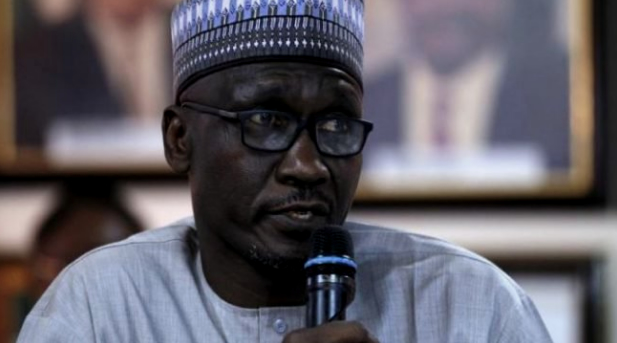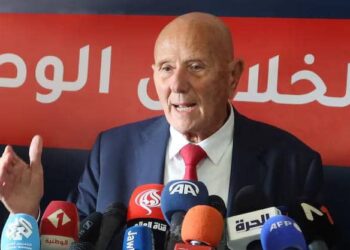A litre of petrol also known as Premium Motor Spirit (PMS) may soon sell for N234 per litre, the group managing director (GMD) of the Nigerian National Petroleum Corporation (NNPC), Malam Mele Kyari, has said.
Speaking during a ministerial briefing on Thursday at the Presidential Villa, Abuja, Kyari said NNPC can no longer bear the burden of underpriced sales of premium motor spirit (PMS), better known as petrol, adding that the market price need to be implemented.
Kyari lamented the burden NNPC has inflicted on itself by the ongoing subsidisation of the cost of PMS in the country, saying that sooner than later Nigerians have to pay the actual cost for the commodity.
According to him, the actual cost of importation and handling charges amounts to N234 per litre, the federal government sells it at N162 per litre.
“Today, NNPC is the sole importer of petrol. We are importing market price and we are selling at N162. Looking at the current price situation, the market price could have been between that N211 and N234 per litre.
“The meaning of this is that the consumers are not paying for the full value of PMS that we are consuming and therefore the NNPC is bearing that cost. As at today, the difference is being carried in the books of the NNPC and I can confirm to you that the NNPC nay no longer be in a position to carry that cost.
“That is why early last year, you will recall the full deregulation of PMS and we have followed this through until September when the price shifted above N145, disputes came up between us and the trade unions and the civil societies leading to an engagement between us and organised labour which prevented the implementation of the actual price of the petroleum product at that time.
“These engagements are continued and the objective of the engagement is actually not to prevent the implementation but to make sure there is sufficient framework on ground to ensure that consumers pay for the actual price of this product and that they are not exploited.
“Second, it is to also put some reliefs such that the potential effect of the fuel price increase is not transferred to the ordinary people. Part of this is to deepen the auto-gas programme.
“With auto-gas programme, we will be able to deliver alternative fuel for vehicles including Keke NAPEP so that the price per litre equivalent will probably be half of the PMS at its current price.
“So, as we speak, I will not say that we are in a subsidy regime but we are in a situation where we are trying to exit the underpriced sale of PMS until we come to the full value of the product in the market.
“We want to use this opportunity to tell you that PMS today sells above N200 across our borders and in some places about N500 to a litre. In some countries, the Nigerian fuel is their territory fuel and we are supplying almost everybody in the West African sub-region.
“We cannot continue to afford this because we have our own issues. That’s why the eventual exit from this is completely inevitable. When that will happen I don’t know but I know that some engagements are going on; the government is concerned about the natural impact of price increase on our transportation and other consumer aspects of our society,” he said.
On the exact amount the NNPC is subsidising fuel monthly, Kyari said, “Our current consumption — evacuation from our depots is about 60 million litres per day. We are selling at N162 per litre. The current market price is N234. The difference between the two, multiply by 60 million litres will give you amount per month.
“This is a simple arrangement you do. If you want the exact figures from our books, I do not have them from this moment but it’s between N100billion and N120billion per month. We are putting the difference in the books of NNPC and we cannot continue to bear that.
“Today, NNPC is the sole importer of PMS. We are importing at market price and we are selling at N162 per litre today. Looking at the current market situation, the actual price could have been around N211 that you mentioned and around N234 per litre.
“The meaning of this is that consumers are not paying for the full value of PMS that we are consuming and, therefore, somebody is bearing that cost. As we speak, the difference is being carried in the books of the NNPC and I can confirm to you that NNPC may no longer be in a position to carry that burden because we cannot continue to do so,” he said.

































